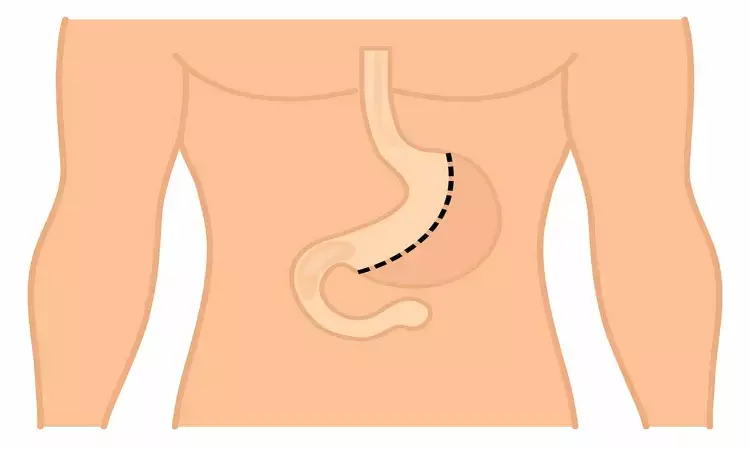- Home
- Medical news & Guidelines
- Anesthesiology
- Cardiology and CTVS
- Critical Care
- Dentistry
- Dermatology
- Diabetes and Endocrinology
- ENT
- Gastroenterology
- Medicine
- Nephrology
- Neurology
- Obstretics-Gynaecology
- Oncology
- Ophthalmology
- Orthopaedics
- Pediatrics-Neonatology
- Psychiatry
- Pulmonology
- Radiology
- Surgery
- Urology
- Laboratory Medicine
- Diet
- Nursing
- Paramedical
- Physiotherapy
- Health news
- Fact Check
- Bone Health Fact Check
- Brain Health Fact Check
- Cancer Related Fact Check
- Child Care Fact Check
- Dental and oral health fact check
- Diabetes and metabolic health fact check
- Diet and Nutrition Fact Check
- Eye and ENT Care Fact Check
- Fitness fact check
- Gut health fact check
- Heart health fact check
- Kidney health fact check
- Medical education fact check
- Men's health fact check
- Respiratory fact check
- Skin and hair care fact check
- Vaccine and Immunization fact check
- Women's health fact check
- AYUSH
- State News
- Andaman and Nicobar Islands
- Andhra Pradesh
- Arunachal Pradesh
- Assam
- Bihar
- Chandigarh
- Chattisgarh
- Dadra and Nagar Haveli
- Daman and Diu
- Delhi
- Goa
- Gujarat
- Haryana
- Himachal Pradesh
- Jammu & Kashmir
- Jharkhand
- Karnataka
- Kerala
- Ladakh
- Lakshadweep
- Madhya Pradesh
- Maharashtra
- Manipur
- Meghalaya
- Mizoram
- Nagaland
- Odisha
- Puducherry
- Punjab
- Rajasthan
- Sikkim
- Tamil Nadu
- Telangana
- Tripura
- Uttar Pradesh
- Uttrakhand
- West Bengal
- Medical Education
- Industry
Avoiding Prophylactic Drains After Gastrectomy Increases Risk of Postoperative Complications: ADIGE Trial

Italy: A recent study, the Abdominal Drain in Gastrectomy (ADIGE) Randomized Clinical Trial, has revealed important insights into using prophylactic drains after gastrectomy, a common surgical procedure for treating stomach cancer and other gastrointestinal conditions. The study challenges the notion that avoiding the use of abdominal drains post-surgery might reduce complications and highlights the associated risks of postoperative invasive procedures.
In their study published in JAMA Surgery, the researchers found that avoiding prophylactic drain use after gastrectomy increased the risk of postoperative invasive procedures, making it inadvisable to forgo their use.
Previous evidence indicates that prophylactic abdominal drainage after gastrectomy for cancer may help reduce postoperative morbidity and shorten hospital stays. However, this evidence comes from small studies with a significant risk of bias. More research is needed to assess whether drains effectively fulfill their primary role of identifying and managing postoperative intraperitoneal collections without necessitating reoperation or additional percutaneous drainage. In light of this, Jacopo Weindelmayer, General and Upper GI Surgery Division, Azienda Ospedaliera Universitaria Integrata, Borgo Trento, Verona, Italy, and colleagues aimed to investigate whether avoiding routine abdominal drainage would lead to an increase in postoperative invasive procedures.
For this purpose, the researchers conducted the ADIGE Trial, a multicenter, prospective randomized noninferiority study. The trial included 404 patients with gastric cancer undergoing subtotal or total gastrectomy, recruited from 11 centers in Italy between December 2019 and January 2023. Participants were randomized into two groups: prophylactic drain or no drain.
The primary outcome was reoperation or percutaneous drainage within 30 days post-surgery, analyzed through a modified intention-to-treat approach. The study aimed to test if avoiding drains increased the need for invasive procedures, with surgeons and patients blinded until gastrointestinal reconstruction.
The trial revealed the following findings:
- Of the 404 patients randomized, 226 (57.8%) were male, with a median age of 71 years.
- Fourteen patients were excluded due to intraoperative identification of nonresectable disease, leaving 390 patients for analysis.
- In the modified intention-to-treat (mITT) analysis, 7.7% of patients in the drain group required reoperation or percutaneous drainage by day 30, compared to 15% of patients in the no-drain group, favoring the drain group (difference 7.2%).
- The primary difference was due to a lower reoperation rate in the drain group (5.1%) compared to the no-drain group (12.4%).
- Drain-related complications occurred in 4 patients.
"These findings indicate that avoiding drains may raise the risk of postoperative complications, especially invasive procedures, in this patient population. Future research identifying high-risk groups could help refine decisions regarding prophylactic drainage," the researchers concluded.
Reference:
Weindelmayer J, Mengardo V, Ascari F, et al. Prophylactic Drain Placement and Postoperative Invasive Procedures After Gastrectomy: The Abdominal Drain After Gastrectomy (ADIGE) Randomized Clinical Trial. JAMA Surg. Published online November 27, 2024. doi:10.1001/jamasurg.2024.5227
Dr Kamal Kant Kohli-MBBS, DTCD- a chest specialist with more than 30 years of practice and a flair for writing clinical articles, Dr Kamal Kant Kohli joined Medical Dialogues as a Chief Editor of Medical News. Besides writing articles, as an editor, he proofreads and verifies all the medical content published on Medical Dialogues including those coming from journals, studies,medical conferences,guidelines etc. Email: drkohli@medicaldialogues.in. Contact no. 011-43720751


